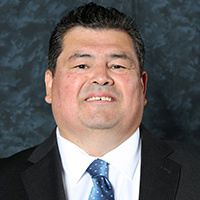Channelview Juvenile Law Lawyer, Texas
Sponsored Law Firm
-
 x
x

Click For More Info:
-
Law Office of Baldo Garza PLLC
11200 Westheimer Rd. Suite 710 Houston, TX 77042» view mapCriminal Defense Law Working With You Every Step
Baldo Garza PLLC has been working together for 15 years and has a proven track record of success. We use that experience to help you down a path to the results you need.
800-691-8350
Ned Barnett
✓ VERIFIEDJuvenile Law, Administrative Law, Federal Appellate Practice, Domestic Violence & Neglect,
If you are facing a serious criminal charge in the Houston area, you'll need an experienced, quality, aggressive defense attorney. The name that shoul... (more)
Antonio Benavides
Juvenile Law, Immigration, Family Law, Personal Injury
Status: In Good Standing Licensed: 23 Years
Daniel Jason Corno
Immigration, Public Schools, Family Law, Juvenile Law
Status: In Good Standing Licensed: 17 Years
Holly Torbert Williamson
Juvenile Law, Commercial Real Estate, Business & Trade, Credit & Debt
Status: In Good Standing Licensed: 27 Years
William Larry Wilson
Juvenile Law, Estate Planning, Family Law, Commercial Real Estate, Business
Status: In Good Standing Licensed: 55 Years
Kenneth D. Junck
Family Law, Juvenile Law, Wills, Criminal
Status: In Good Standing Licensed: 58 Years
Harry Wheeler Rhodes
Juvenile Law, Other, Family Law, Divorce & Family Law
Status: In Good Standing Licensed: 33 Years
Maria Elena Navarro
Juvenile Law, Family Law, Criminal, Personal Injury
Status: In Good Standing Licensed: 27 Years
 Baldomero Garza III Houston, TX
Baldomero Garza III Houston, TX Practice AreasExpertise
Practice AreasExpertise


